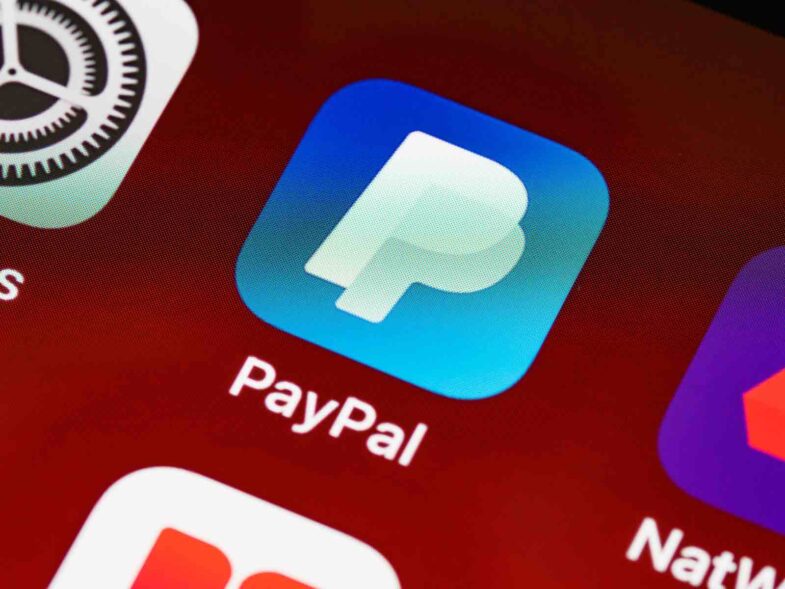Navigating the landscape of e-commerce and online businesses involves several important decisions, among which, choosing the right payment gateway stands out prominently. As the global leader in online payments, PayPal offers a myriad of solutions for budding entrepreneurs and established businesses alike. Let’s embark on a comprehensive exploration of PayPal’s offerings, ensuring you’re equipped with the knowledge to leverage it effectively.
What is a PayPal Business Account?
A PayPal business account transcends the realm of a typical digital wallet. Tailored explicitly for businesses, it serves as a robust platform facilitating effortless, secure financial transactions for entities ranging from solo freelancers to large corporations. The intuitive design allows users to engage in a variety of financial activities, ensuring every transaction is seamless, whether it’s paying a vendor or receiving funds from a global client. If you are getting ready to start a new business, a business account is what you need.
But this account isn’t solely about sending and receiving money. Beyond that, PayPal offers advanced tools for invoicing, generating detailed financial reports, and managing funds with precision. What truly sets it apart is its ability to segregate personal and business expenses, allowing entrepreneurs to maintain clear financial boundaries. This clarity is invaluable, providing businesses with a clearer financial picture and facilitating smoother operational processes.
Types of PayPal Business Accounts
PayPal, in its commitment to catering to a vast array of business needs, offers a diverse suite of account types, each tailored for specific operational requirements and business sizes. These accounts are designed to ensure that businesses, regardless of their scale or domain, have access to payment solutions that align perfectly with their objectives.
- Standard Business Account: This is the go-to choice for many start-ups and smaller businesses. With no monthly fees, it offers a hassle-free solution to engage in online transactions. Features like easy integration with shopping carts, quick setup, and access to PayPal’s global buyer base make it a favorable choice for those beginning their entrepreneurial journey.
- Pro Business Account: Targeted towards medium to large-scale enterprises, the Pro account offers everything the Standard account does and more. For a monthly fee, businesses unlock a customizable checkout experience, advanced payment solutions, and the ability to host and manage their own checkout pages.
- PayPal Here: Bridging the gap between physical retail and digital payments, PayPal Here is tailored for businesses with brick-and-mortar operations. With a card reader that connects to mobile devices, businesses can process in-person card payments, making it a boon for pop-up shops, cafes, and local stores.
- Non-profit Business Account: Charitable organizations have unique financial needs, and PayPal acknowledges this. The Non-profit account comes with reduced transaction fees and donation-specific tools, ensuring these entities can maximize the funds they receive for their causes.
- Freelancer Account: Recognizing the growing freelance economy, PayPal introduced a variant suitable for individual professionals. This setup caters to those who handle diverse clients, often from different countries, and need a streamlined way to manage invoices, payments, and currency conversions.
By offering such a wide spectrum of account types, PayPal ensures that businesses, non-profits, and individual professionals can find a payment solution that resonates with their operational needs, enhancing efficiency and customer trust.
How to Make Payments with PayPal
Even though PayPal reviews highlight the simplicity of the app and friendly UX, it doesn’t compromise on the depth of its features:
- Direct Payment: At its core, PayPal allows you to send money instantaneously using just an email address.
- Invoice Creation: With a professional touch, businesses can draft and dispatch detailed invoices to clients, offering them the convenience to pay directly through a link.
- Subscription and Recurring Payments: For businesses that operate on a subscription model, PayPal ensures smooth automatic deductions, securing both cash flow and customer trust.
How to Receive Payments with PayPal
Receiving funds is equally streamlined:
- PayPal Buttons: These customizable buttons can be integrated into websites, enabling customers to make payments without any detours.
- Direct Transfer: The essence of simplicity, clients can use your PayPal email address to deposit funds directly.
- QR Code Payments: Modernizing the traditional retail experience, businesses can generate QR codes for instant customer payments.
- PayPal Here: An amalgamation of the digital and physical, accepting card payments is made portable.
Why Use PayPal?
In the vast landscape of online payment platforms, PayPal has distinguished itself as a cornerstone. Its prominence is not accidental; it’s the result of years of evolving with the needs of businesses and individuals alike. Here’s a deeper exploration of why PayPal remains a top choice for many:
- Global Footprint: One of the prime advantages of PayPal is its international acceptance. Operating in over 200 countries and supporting numerous currencies, it facilitates businesses in reaching a global clientele without fretting over cross-border transaction complexities.
- Cutting-edge Security Protocols: At the heart of PayPal’s success is its unwavering commitment to transaction safety. With advanced encryption techniques, continuous fraud monitoring, and secure tokenization, it promises users peace of mind with every transaction.
- Intuitive User Experience: Whether you’re a tech-savvy business owner or new to the digital domain, PayPal’s platform is designed to be straightforward. Its compatibility with major e-commerce platforms, simple checkout processes, and easy account management tools make it a joy to use.
- Versatility for All: Catering to a spectrum of users— from individual sellers on marketplaces to colossal e-commerce giants— PayPal’s suite of tools and account types ensures that every user finds a tailored solution for their specific needs.
- Dispute Resolution and Seller Protection: In the world of online commerce, disputes are inevitable. However, PayPal’s robust seller protection program and a fair dispute resolution system ensure that both sellers and buyers have a platform to voice concerns, fostering a sense of trust.
- Financial Flexibility: With features like “Pay in 4” (buy now, pay later) and credit options, PayPal offers flexibility to consumers, potentially boosting sales for businesses. These options can enhance buying confidence, leading to larger cart sizes and repeat purchases.
- Ecosystem of Integrations: Beyond its core payment processing capabilities, PayPal integrates seamlessly with a myriad of other tools and platforms, from accounting software to e-commerce builders. This ecosystem ensures that businesses can build a holistic, streamlined operation.
- Eco-friendly Initiatives: In today’s environmentally-conscious era, PayPal’s commitment to sustainability — be it through green energy usage or sustainable business practices — not only enhances its corporate responsibility but also aligns with the values of many modern consumers and businesses.
By harmoniously melding security, flexibility, user-friendliness, and global reach, PayPal has carved a niche for itself. For businesses aiming to cultivate trust, expand their reach, and streamline operations, embracing PayPal isn’t just an option—it’s a strategic imperative.






